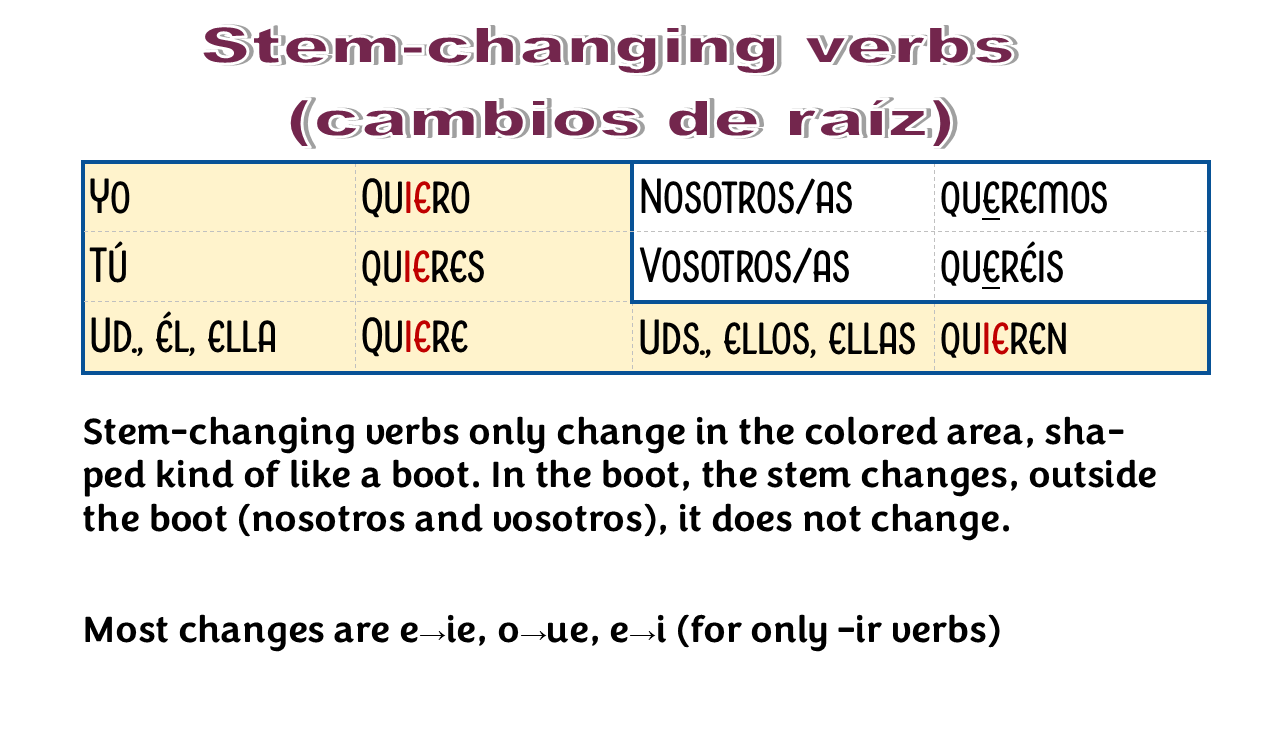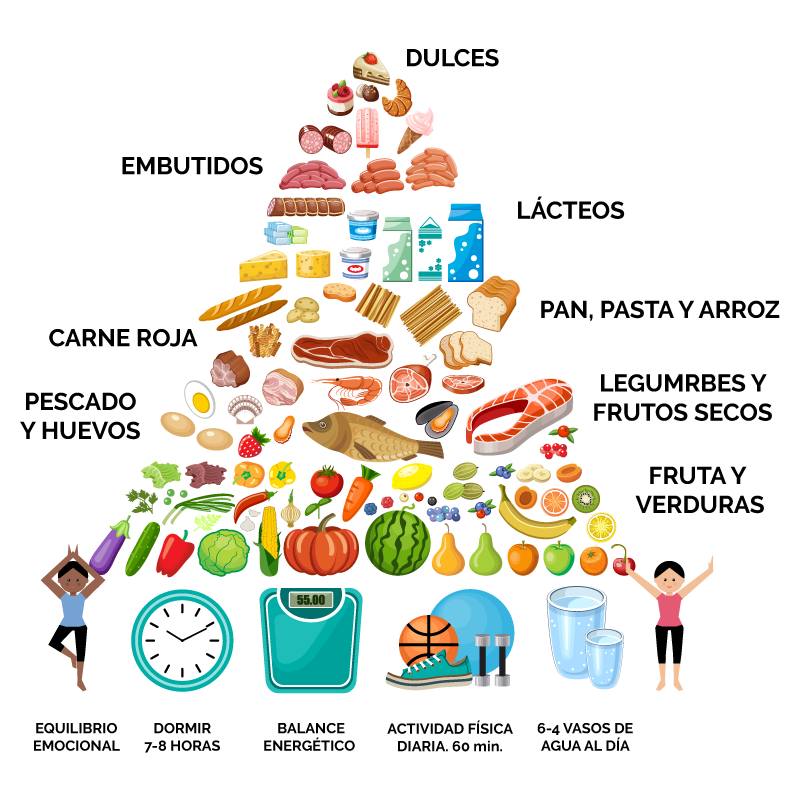Semana 9 (Reflexivos, la rutina, cambios de raíz y la comida)
Los verbos reflexivos
Reflexive verbs are actions when the subject (the person who does the action) and the object (the person who receives the action) are the same. In English, we use "oneself, myself, yourself" etc. to express this idea.
In Spanish, we use the reflexive pronouns, as seen in the following table:
| Pronombre | Verbo |
|---|---|
| Me | levanto |
| Te | levantas |
| Se | levanta |
| Nos | levantamos |
| Os | levantáis |
| Se | levantan |
As you can see, the pronoun and the conjugation of the verb matches in the person: Me (myself, from yo) levanto (I get up, also from yo). If the action is NOT done to oneself, but to someone or something else it is NOT reflexive, and the pronouns is NOT used: Levanto a mi hijo (I get my son up).
In English we say "I brush my teeth everyday" but Spanish just uses the article for reflexive verbs "Me cepillo los dientes cada día" and don't use "mis" or any of the possessive adjectives.
Note that not all reflexive verbs have the "self" component when considered in English, but still may be reflexive in Spanish, such as "dormirse"--to fall asleep. It is not "sleep myself" but it still a reflexive verb.
| Verbos reflexivos | |
|---|---|
| despertarse (e→ie) | wake up |
| levantarse | get up |
| ducharse | shower |
| bañarse | bathe |
| lavarse (el pelo/ los dientes/ las manos) | wash (your hair/ teeth/ hands) |
| afeitarse | shave (face) |
| sentirse (e→ie) | feel (interior) |
| maquillarse | put make up on |
| peinarse | comb your hair |
| cepillarse (el pelo/ los dientes) | brush (your hair/ your teeth) |
| ponerse (algo) | put something on |
| vestirse (e→i) | get dressed |
| quitarse (algo) | take something off |
| desvestirse (e→i) | get undressed |
| secarse | dry |
| divertirse (e→ie) | have fun |
| acostarse (o→ue) | get in bed |
| dormirse (o→ue) | fall asleep |



